Chocolate is beloved all over the world, and if you’re anything like me, you probably have a secrect stash of fancy chocolates on hand for emergencies (and munchies). And when collecting your treats, you've probably come across the terms chocolatier and chocolate maker several times; most people use them interchangeably.
But did you know that they're actually completely different jobs? This may seem confusing, as the titles chocolatier and chocolate maker are used loosely by consumers, but while both artisans are involved in chocolate manufacturing, their scope of work is quite different.
In this article, we break down the definitions and roles of chocolatiers and chocolate makers, to dispel the confusion surrounding these two chocolate-producing professions.
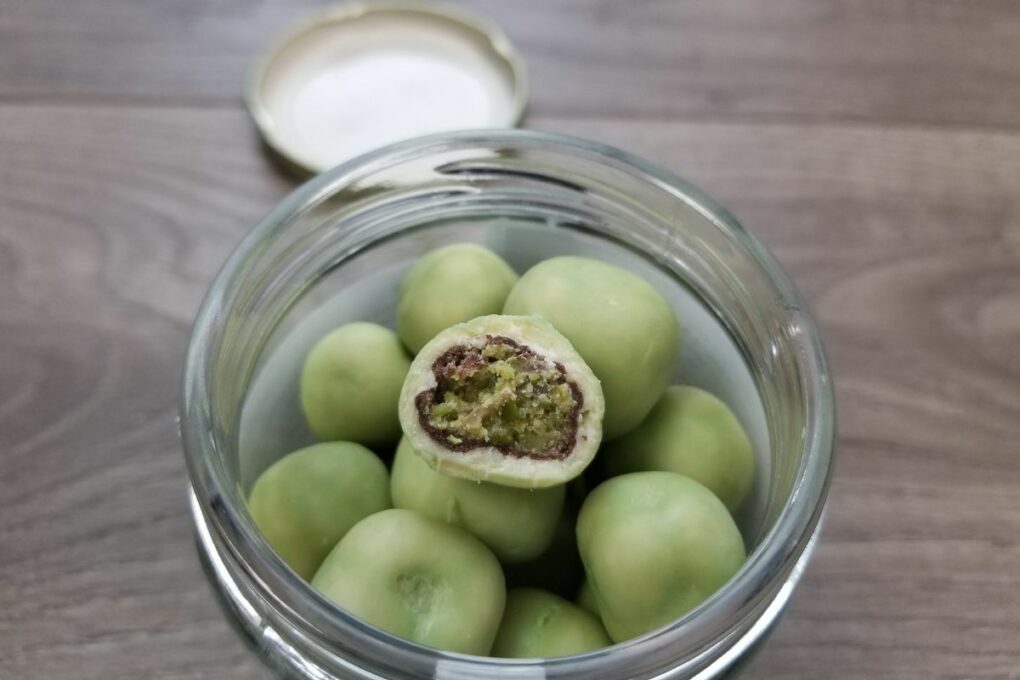
Jump To
What is a Chocolatier?
A chocolatier is a skilled culinary professional who specializes in working with chocolate, in particular, the creation of chocolate confections such as truffles, candies, and other chocolate-based treats. A chocolate master of sorts, a chocolatier focuses on creating chocolate confections based on their knowledge and particular industry experience.
One can’t make high-quality chocolate confections that are both visually appealing and taste exquisite without some level of experience. The person in question should have a thorough understanding of chocolate’s flavors, textures, and characteristics, genrally acquired through formal or informal school (i.e., training as an apprentice).
Chocolatiers build the necessary industry experience to hone their skills and expertise through certifications and hands-on accomplishments that, in turn, allow them to gain insight, awareness, and critique to produce excellent quality chocolate confections.
Most all chocolatiers leave the processing of cocoa beans to chocolate makers, as they work with pre-made chocolate known as couverture, already prepared by a chocolate maker, an drather their talents to create unique and delectable chocolate creations. A professional chocolatier almost always uses a tempering machine to help craft chocolates.
They may also be involved in the selection and blending of various varieties of chocolate to provide distinct flavors and textures. A combination of skills, technical know-how, professional equipment, and discernment for using high-quality ingredients make a chocolatier.
A chocolatier may be responsible for managing a chocolate enterprise as a whole, running through several roles from recipe creation, development, and testing, up to packaging, displaying, and selling.
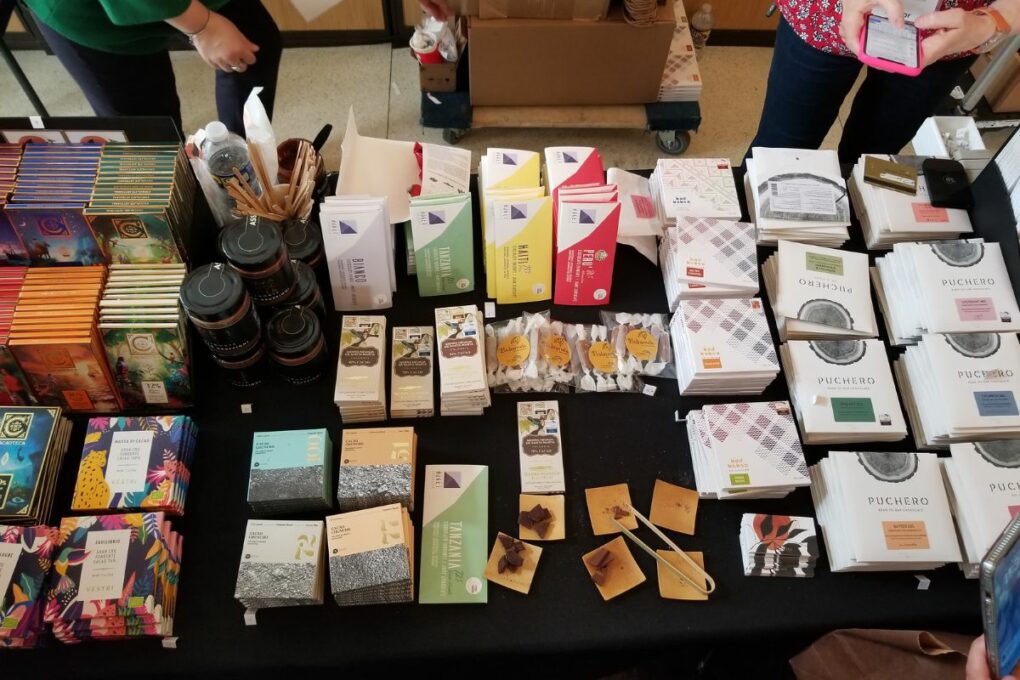
What is a Chocolate Maker?
A chocolate maker, on the other hand, is in charge of manufacturing the chocolate itself. Chocolate makers obtain high-quality cacao beans from around the world and then roast, crush, and refine them to create chocolate, from raw cacao beans to the final product.
The makers may also be involved in the selection and blending of various cacao bean kinds to create distinct flavor characteristics, as originated by European chocolate makers throughout the 20th century. Chocolate manufacturers concentrate on creating high-quality chocolate from unroasted cacao beans.
It might take years of education, experience, and skill development to become a professional chocolatier or competent chocolate maker, though the paths of learning are distinct. A chocolate maker understands how to discern the quality of beans and origins (terroir and harvest) and must stay up-to-date on the constant changes in the industry.
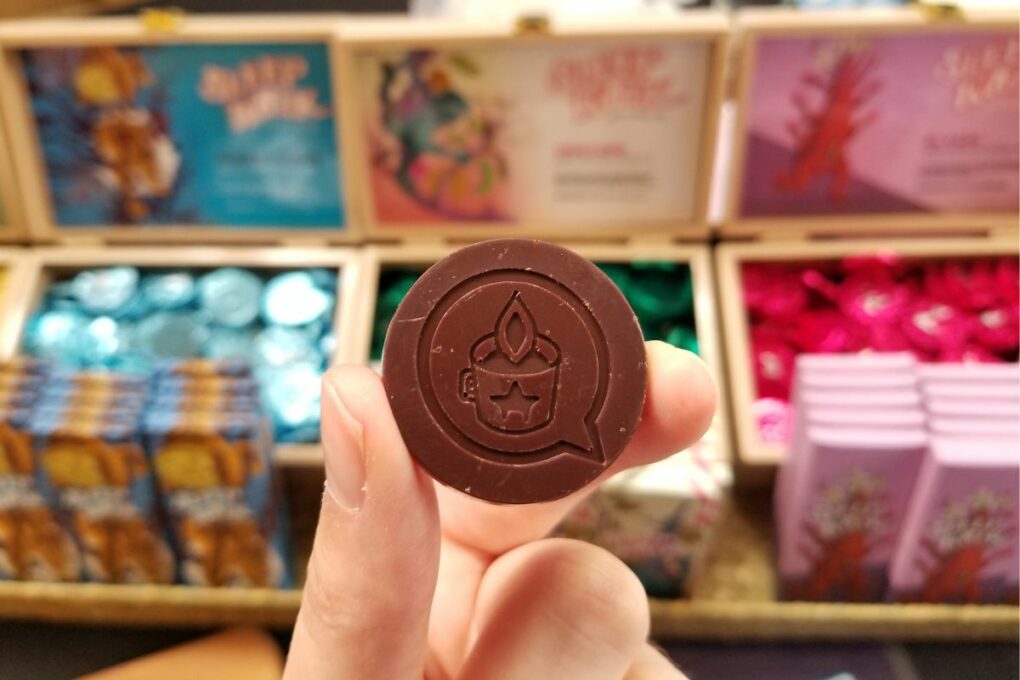
Chocolate Maker vs. Chocolatier: Main Differences
Both chocolatiers and chocolate makers are involved in the production of chocolates. However, these artisans have distinct roles and responsibilities in the production of chocolate. Chocolatiers manufacture chocolate confections, whereas chocolate makers make the chocolate itself from raw cacao beans.
One of the most significant differences between a chocolatier and a chocolate maker is their role in the chocolate production process. A chocolatier is a specialist in the creation of chocolate confections.
They typically come in after the chocolate has been produced by a chocolate maker, applying their knowledge and creativity to create one-of-a-kind delectable chocolate items. Chocolatiers may also be involved in the selection and blending of several varieties of chocolate to generate unique flavors and textures, and often they come from a pastry background.
A chocolate maker, however, is in charge of creating the actual chocolate ingredient. This starts with the fermented & dried cacao beans and ends with the finished chocolate product. Chocolate makers often source high-quality cacao beans from all across the world before roasting, grinding, and refining them to make chocolate.
They, too, can be involved in the selection and blending of various cacao bean kinds to create distinct flavor characteristics. Both a chocolatier and a chocolate maker will benefit from being educated or having some understanding of chocolate, including its flavors, textures, and properties.

This is useful when a chocolatier creates a bonbon or when a chocolate maker brings out the flavor of a cacao bean. They both have great attention to detail and a great deal of patience. A chocolatier understands that working with chocolate can be a delicate and time-consuming process, while a chocolate maker will ensure that every batch of chocolate she makes is perfect.
While a chocolate maker must be technically skilled in roasting, grinding, and tempering chocolate, a chocolatier is constantly seeking creativity and innovation as well as consistency in the production of chocolate confections. The time it takes a chocolatier to prepare a chocolate confection varies according to the complexity of the recipe and the specific techniques used.
Tempering chocolates, molding, filling, and decorating a chocolate confection can take anywhere from a few minutes to many hours. Making truffles, for example, includes numerous skills, such as tempering the chocolate, making the ganache filling, and rolling the truffles.
A chocolatier will need about 2-3 hours to create a finished product that is both delicious and aesthetically pleasing. Making high-quality chocolate with complex flavors and aromas might take several hours to days for a chocolate maker.
Many trials and errors will occur before obtaining outstanding-tasting chocolates, especially when working with various cacao beans. Chocolate making can take anywhere from a few hours to several days, depending on the techniques and equipment employed, and most chocolate is aged before being molded.
Sorting, cleaning, roasting, grinding, then finally refining the cocoa liquor are all typical stages of the chocolate making process. Lastly, the chocolate is tempered before being made into candies and treats.
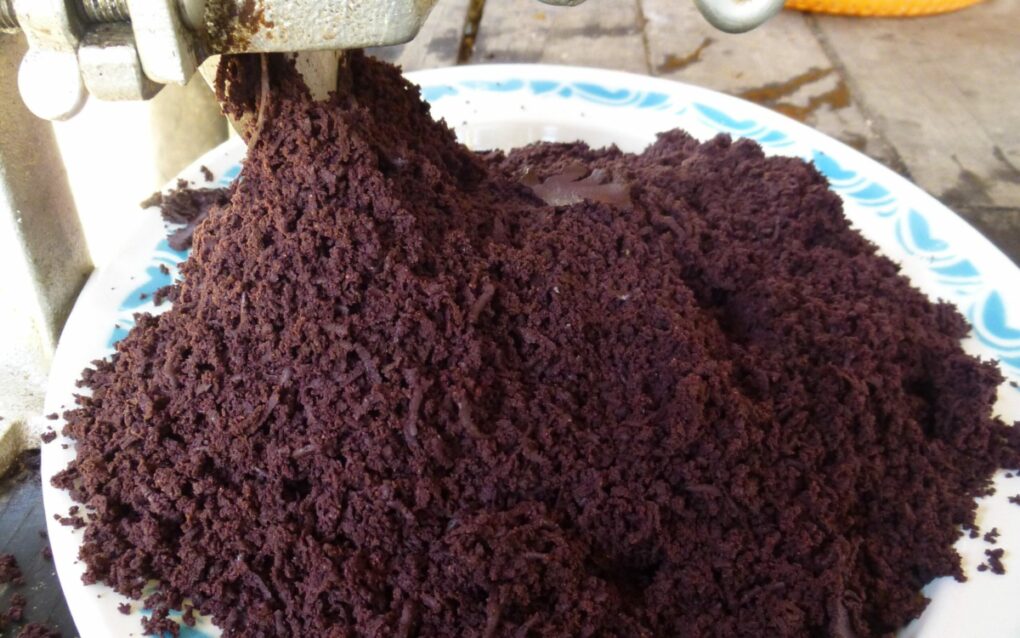
How Do You Become a Chocolatier?
To become a chocolatier, a person can be self-taught and dive deep into chocolates through hours of research and practical exercises without undertaking schooling or apprenticeship.
However later on, I highly recommend expanding your understanding through pformal industry experience. Training as an apprentice under a master chocolatier is a good way to gain industry experience, and many chocolatiers go this route for its structure, on-hand experience, and learning advantage.
Likewise, one can enroll in a professional chocolatier program at a recognized culinary school and take either a pastry, culinary, or hospitality course. Of course, these are umbrella courses that chocolate falls under, and generally chocolate is only a portion of your training unless otherwise specified.
There are also a handful of online courses that an aspiring chocolatier may want to take, as a way to gain background understanding on the industry and the intricacies of building different flavors. For in-person culinary training, once you have an associate degree you can apply as a trainee to begin your work with chocolates.
Build skills and expertise through training, supplementary courses, and industry experience to develop and hone your chocolate skills before becoming a reputable chocolatier.
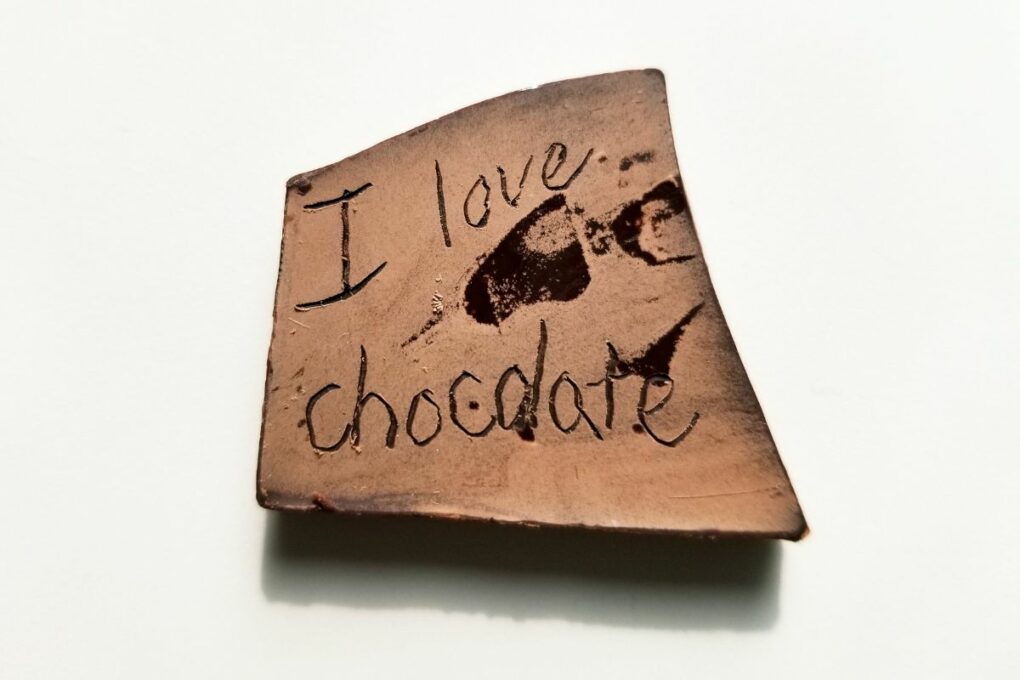
Chocolatier vs Chocolate Maker FAQ
A professional chocolate maker is a chocolate manufacturer who sells chocolate products they've made from cacao beans, and has sometimes acquired a professional certificate. This is the person in charge of making chocolate from cocoa beans and the individual who's there throughout the entire process, from cocoa beans arriving at the factory through chocolate bar production.
A chocolate maker is in charge of creating the chocolate ingredient itself. Their responsibilities include selecting, sorting, and cleaning raw cacao beans; roasting, grinding, and refining cacao; and tempering and molding the finished product. Chocolate makers may work in large-scale chocolate factories or small artisanal chocolate shops, and their jobs require them to use specialized equipment to produce chocolate. A chocolate maker must have a profound understanding of chocolate, attention to detail, and outstanding technical abilities if they're truly dedicated to producing delicious and high-quality chocolate.
A chocolate chef is a loosely used term for someone who works with chocolates. It’s not often used in the industry; the proper term is chocolatier or chocolate maker.
Anyone can be a chocolatier. Making chocolates and selling them from home does not quite make one a professional chocolatier, however. To become a professional chocolatier, a combination of education, hands-on experience, and skill development is required. You can enroll in a course, attend specific classes, or become an apprentice and work under a master chocolatier, but it often takes years to attain professional status.

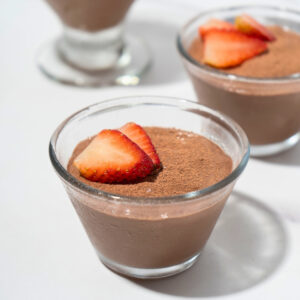
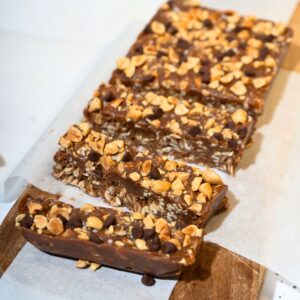



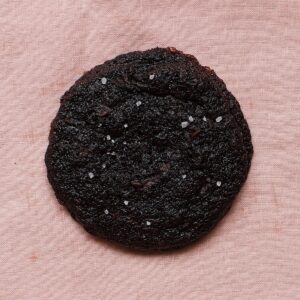





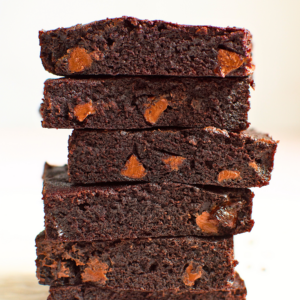

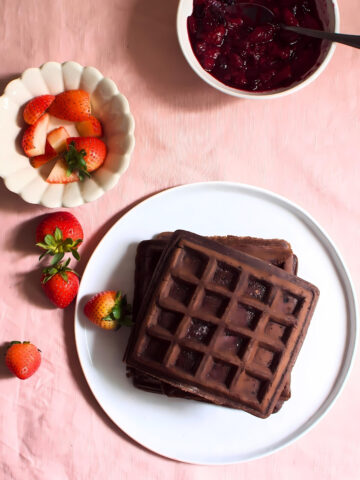


Comments
No Comments